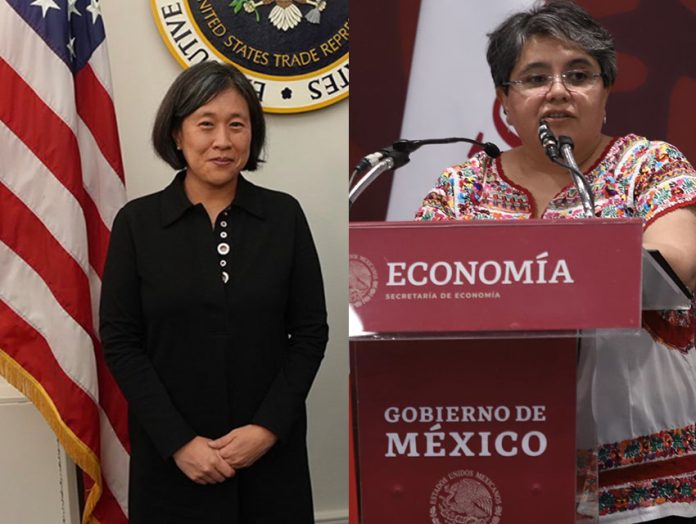The United States government has urged its Mexican counterpart to promptly address the concerns it has raised about Mexico’s nationalistic energy policies.
The U.S. Trade Representative (USTR) in July requested dispute settlement consultations with Mexico under the United States-Mexico-Canada Agreement (USMCA).
“We have repeatedly expressed serious concerns about a series of changes in Mexico’s energy policies and their consistency with Mexico’s commitments under the USMCA,” Ambassador Katherine Tai said at the time. “These policy changes impact U.S. economic interests in multiple sectors and disincentivize investment by clean-energy suppliers and by companies that seek to purchase clean, reliable energy.”
During a virtual meeting with new Economy Minister Raquel Buenrostro on Thursday, Tai “underlined the importance of making expeditious progress in addressing the issues in Mexico’s energy sector that the United States identified in its July 20, 2022, consultations request under the USMCA,” the office of the USTR said in a statement.

Tai also stressed “the importance of avoiding a disruption in U.S. corn exports and returning to a science- and risk-based regulatory approval process for all agricultural biotechnology products in Mexico,” the statement said.
A ban on genetically modified corn imports and use of the controversial herbicide glyphosate is set to take effect in 2024, and Mexico is already reducing its reliance on non-genetically modified yellow corn imports from the United States, most of which is used as livestock feed.
The USTR and the Mexican Economy Ministry said that Tai and Buenrostro agreed to stay in regular communication on the issues they discussed at Thursday’s meeting.
The United States could have requested the establishment of a dispute panel to make a ruling on the energy policy dispute as the initial deadline for resolution of the concerns was Oct. 3. However, Mexican and U.S. officials said they agreed to extend talks as progress was being made.
Ken Salazar, the United States’ ambassador to Mexico, said later in October that talks were ongoing and didn’t rule out the possibility of a dispute panel being requested.
If such a panel ruled in favor of the U.S. and Canada – which has also challenged Mexico’s energy policies – punitive tariffs could be imposed on Mexican exports.
Both the United States and Canada are unhappy about delays faced by private energy sector companies to receive permits. They also disagree with other energy sector policies and laws that favor Mexico’s state-owned energy firms, including the Electricity Industry Law, which gives power generated by the Federal Electricity Commission (CFE) priority on the national grid over that produced by private and renewable energy companies.
Mexico News Daily
